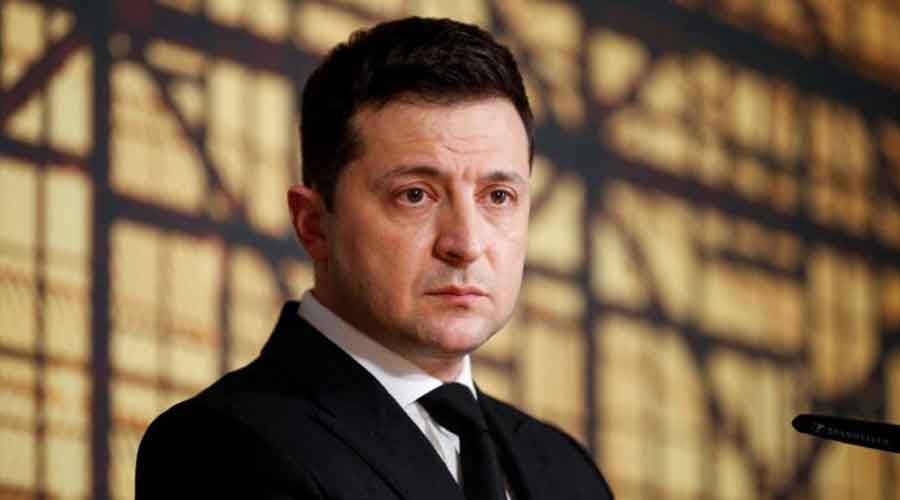Diplomats from Ukraine and Russia were scheduled to arrive in Istanbul for talks, with President Volodymyr Zelensky saying his country was “ready” to discuss adopting neutral status. But the Kremlin offered little hope for an agreement that would end five weeks of fighting.
In an interview on Sunday with Russian journalists, Zelensky said that Ukraine was willing to discuss lifting restrictions on the Russian language and adopting a neutral geopolitical status. But he insisted that any deal would need to be validated by a referendum to be held after Russian troops withdraw, and that other countries would need to provide his nation with security guarantees.
“We are ready to go for this,” he said, but he pledged not to cede Ukrainian sovereignty and said Ukraine would not discuss two of Putin’s main, vaguely defined demands, the demilitarisation and “de-Nazification” of the country he invaded on February 24.
Zelensky’s glimmer of optimism contrasted with the grim assessment of diplomacy given by the Kremlin’s spokesman, Dmitri S. Peskov, who said that weeks of meetings had made “no significant progress”. Still, Peskov told reporters on Monday that the talks in Istanbul, the first in-person meeting between the two sides in more than two weeks, were important.
Ukrainian officials played down the chances of a major breakthrough at the talks after Turkish President Tayyip Erdogan spoke to Russia’s Vladimir Putin on Sunday.
But the fact that they were taking place in person at all —for the first time since an acrimonious meeting between foreign ministers on March 10 — was a sign of shifts behind the scenes as Russia’s invasion has become bogged down.
On the ground, there was no sign of respite for civilians in besieged cities, especially the devastated port of Mariupol, whose mayor said 160,000 people were still trapped inside and Russia was blocking attempts to evacuate them.
The Kremlin, for its part, said it was alarmed by comments by US President Joe Biden, who said during a speech on Saturday that Putin must not remain in power.
In Kharkiv, Ukraine’s second-biggest city and one of its hardest hit, people were sweeping rubble out of a classroom on the third storey of a school, where a wall had been blown out by a missile before dawn.
“This is a civilian target. It’s a school! They’ve not been able to take the city, so they’ve decided to destroy it,” said Oleksandr, who had been sheltering with his mother on a lower floor of the school after their own neighbourhood was hit. “What the Russians are doing now: let them choke on their own body parts. Not even the fascists did things like this.”
Russia and Ukraine said their delegations would arrive in Turkey on Monday, with the talks due to start on Tuesday.
Ukrainian officials have recently said Russia could now be more willing to compromise, as any hope it may have held of imposing a new government on Kyiv slipped away.
(New York Times News Service)











